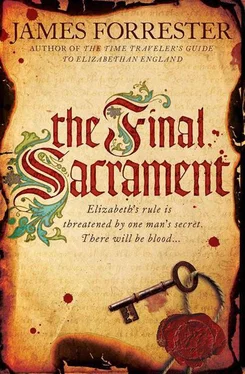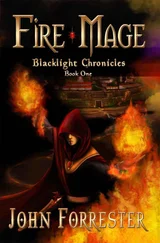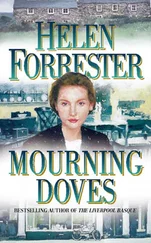James Forrester - Final Sacrament
Здесь есть возможность читать онлайн «James Forrester - Final Sacrament» весь текст электронной книги совершенно бесплатно (целиком полную версию без сокращений). В некоторых случаях можно слушать аудио, скачать через торрент в формате fb2 и присутствует краткое содержание. Жанр: Исторический детектив, на английском языке. Описание произведения, (предисловие) а так же отзывы посетителей доступны на портале библиотеки ЛибКат.
- Название:Final Sacrament
- Автор:
- Жанр:
- Год:неизвестен
- ISBN:нет данных
- Рейтинг книги:5 / 5. Голосов: 1
-
Избранное:Добавить в избранное
- Отзывы:
-
Ваша оценка:
- 100
- 1
- 2
- 3
- 4
- 5
Final Sacrament: краткое содержание, описание и аннотация
Предлагаем к чтению аннотацию, описание, краткое содержание или предисловие (зависит от того, что написал сам автор книги «Final Sacrament»). Если вы не нашли необходимую информацию о книге — напишите в комментариях, мы постараемся отыскать её.
Final Sacrament — читать онлайн бесплатно полную книгу (весь текст) целиком
Ниже представлен текст книги, разбитый по страницам. Система сохранения места последней прочитанной страницы, позволяет с удобством читать онлайн бесплатно книгу «Final Sacrament», без необходимости каждый раз заново искать на чём Вы остановились. Поставьте закладку, и сможете в любой момент перейти на страницу, на которой закончили чтение.
Интервал:
Закладка:
At Walsingham’s house, the servant who answered the door brusquely informed him that Walsingham was away on the queen’s business. No matter how much Clarenceux harangued the man, he would not say where. Leaving with a few choice curses, he galloped away, riding in a blind fury. People turned their heads and shouted at him to slow down. He almost careered into a wagon crossing Cornhill; another time a young woman had to throw herself out of his path. Only that last close scrape brought him to his senses. A moment later he reached Aldgate and the road heading east. There was no point going further.
Thomas is right , he thought, wiping his face. It is burning through my mind like spirit of vitriol.
He looked at the people coming and going through the city gate-women with baskets, men driving small carts, servants carrying firewood or provisions, and one or two people on horseback-and felt suddenly purposeless. My family would be better off if I were dead , he thought. If I were to destroy the document and myself in some way, publicly, no one would bother them again . Brutus snorted and waited, the fine rain still coming down. Clarenceux kicked him into a slow walk back along Leadenhall beneath the expensively glazed windows of fine houses.
If it came to the worst, he could defeat them all-all his enemies, those within the queen’s government and those who wished to overthrow her-by an act of personal sacrifice.
The horse broke into a trot, the rain coming down harder on them both. A wide street lay ahead, almost empty because of the rain. He began to canter, then gallop. Onlookers were shocked to see someone galloping straight through the street. Some shouted, some tried to wave at him to slow him down, but Clarenceux’s mind had gone beyond the day-to-day reasoning of polite conduct. He rode hard, swerving this way and that. Coming to Gracechurch Street he turned right and rode to Bishopsgate, under the arch and out along the road to Hackney, past Bedlam Hospital to Hog Lane, where he turned left along the track. A woman in the field to his right had been caught out by the weather and was hurrying to gather up the laundry she had laid on the hedges to dry. Next he had the windmills on his right: four tall wooden buildings, sails unmoving in the wet air. Chiswell Street brought him back into the suburbs of the city, where handsome houses stood with large gardens. He had once wanted to own just such a house. It would have been the way to bring up his children-his son, if he ever had one.
He would never have a son.
Clarenceux slowed. The madness of his ride, and the foolish euphoria he had just felt, settled on him like a cloud. How selfish he had been, risking crashing into someone in the street, endangering so many pedestrians, including children. What had so excited him? The thought of his own destruction. The thought of leaving his wife a widow and his two daughters fatherless. He stopped, dismounted, and felt the rain running down his back, under his collar. His sleeves too were beginning to let in water. Destroying himself might crush all the aspirations of his enemies. It would save his family. But they would all pay a price, and his wife and daughters would pay almost as heavily as he. Clarenceux was suddenly jealous: his self-sacrifice would end with another man lying with Awdrey, having children by her. His daughters would lose the love of a father.
At the turning of Aldersgate Street into London he stopped and rested his forehead against Brutus’s neck. Get a hold of yourself, William. There is a way through this. True, I could end it all, but such decisions can wait. First things first: I must find out why Walsingham has increased the guard on my house.
13
It was late afternoon. Rebecca knelt down by the bed of the feverish young man in the long hall of the hospital in Portchester Castle and started to unwrap the bandages on his leg. Sweating, and uttering involuntary cries of pain, he looked down at her. Like so many sailors and soldiers before him, he saw the kind face, her dark hair and brown eyes with their haunting sadness, and was warmed by her looks, which were even more appealing in the candlelight.
She reached the innermost section of the bandage, still stuck to the skin, and smelled the familiar odor of pus and bloody flesh. Over the last two and a half years she had grown used to the sights and smells of calamitous injuries. She had assisted in more amputations than she could remember. The French war might be over and the number of patients was not as high as it had been when she arrived, but even so, a steady trickle of naval injuries kept arriving. Some had fallen from the rigging of ships onto the deck; some had been blasted by gunpowder or hit by the recoil of a cannon. This young man had slipped when passing between two boats at sea. His lower left leg had been trapped between the gunwales of the two vessels as a wave brought one hard against the other, breaking both of the major bones. He was lucky. Rebecca had seen a man whose whole pelvis had been crushed in a similar accident; he had been brought in quickly, but even so he had not lived long.
“What is your name?” she asked.
“Martin,” he replied, his face contorted as he tried to control the pain. “Martin Milton.”
Rebecca lifted off the last part of the bandage, pulling it away from the sticky flesh and caked blood, and Martin cried out. Very carefully, she turned the now-exposed limb. One of the bones had punctured the skin. It had not rotted: all the flesh was still bloody and pink, and there was healthy skin around his lower leg and foot. However, the jutting broken bone made her uncertain whether to deliver the good news herself or to leave it to Mr. Wheatsheafen, just in case he decided that it had to come off.
Three beds away, Mr. Wheatsheafen saw Rebecca studying Milton’s leg. He dried his hands on a towel and walked across to look over her shoulder. He peered curiously, then came around Rebecca and examined the wound more closely, standing right beside the bed. “Well,” he said carefully, taking plenty of time to consider the situation, “this is definitely a job for the bonesetter. He may be able to put you on your feet again. If not, that bone is good enough for the pot-it won’t go to waste.”
With that he patted the injured man on the shoulder and moved on to the next patient, who had a large bandage covering his skull.
Rebecca grinned at Martin Milton as she set the old bandage to one side and began to wash the wound, cleaning away the dirt and pus. “You can trust Mr. Wheatsheafen,” she said as she worked. “If he makes a joke about your injury, you’re as good as cured.”
Martin Milton said nothing. He merely grimaced an attempted smile at her through the pain.
“I only wish he would make more jokes,” she said, thinking back to some of the men she had had to deal with. Every morning she dreaded the moment when, entering the hall, she discovered that a man who had been a patient the night before was now a corpse. “I am sorry, Martin, this is going to hurt-but if it becomes unbearable, remember this: you are one of the lucky ones.”
When Rebecca had dealt with Martin and re-bandaged him for when the bonesetter arrived, she changed the linen on the beds that had been vacated over the day. This hall had forty-two beds; a third were empty. She left just two made up in case of urgent need. Bundling the canvas sheets and bandages together, she carried them down to a buck basket by the door and dumped them there.
“It’s getting dark. You can go home if all is to your satisfaction,” said Mr. Wheatsheafen as he ticked names off a list at a table.
Rebecca made one more trip up the central aisle, closing the shutters above the beds and wishing the patients a pleasant night’s sleep. To Martin Milton she made a special visit, to make sure the bandages she had applied to his broken leg were not too tight and causing him unnecessary pain. A lantern burning halfway down the hall was sputtering, so she righted the candle inside, corrected the angle of the aperture, and watched it burn again with an even flame. After one last check, seeing the glow of the four lanterns lighting the hall and the beds, she wrapped her cloak around her shoulders and made her way out into the dusk.
Читать дальшеИнтервал:
Закладка:
Похожие книги на «Final Sacrament»
Представляем Вашему вниманию похожие книги на «Final Sacrament» списком для выбора. Мы отобрали схожую по названию и смыслу литературу в надежде предоставить читателям больше вариантов отыскать новые, интересные, ещё непрочитанные произведения.
Обсуждение, отзывы о книге «Final Sacrament» и просто собственные мнения читателей. Оставьте ваши комментарии, напишите, что Вы думаете о произведении, его смысле или главных героях. Укажите что конкретно понравилось, а что нет, и почему Вы так считаете.












